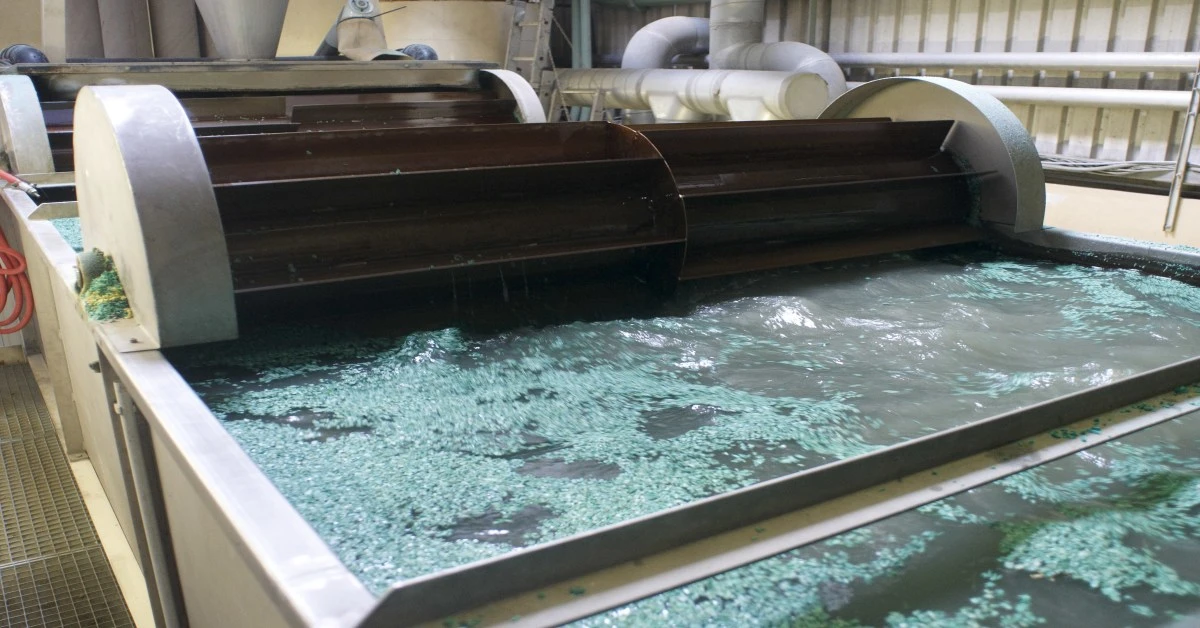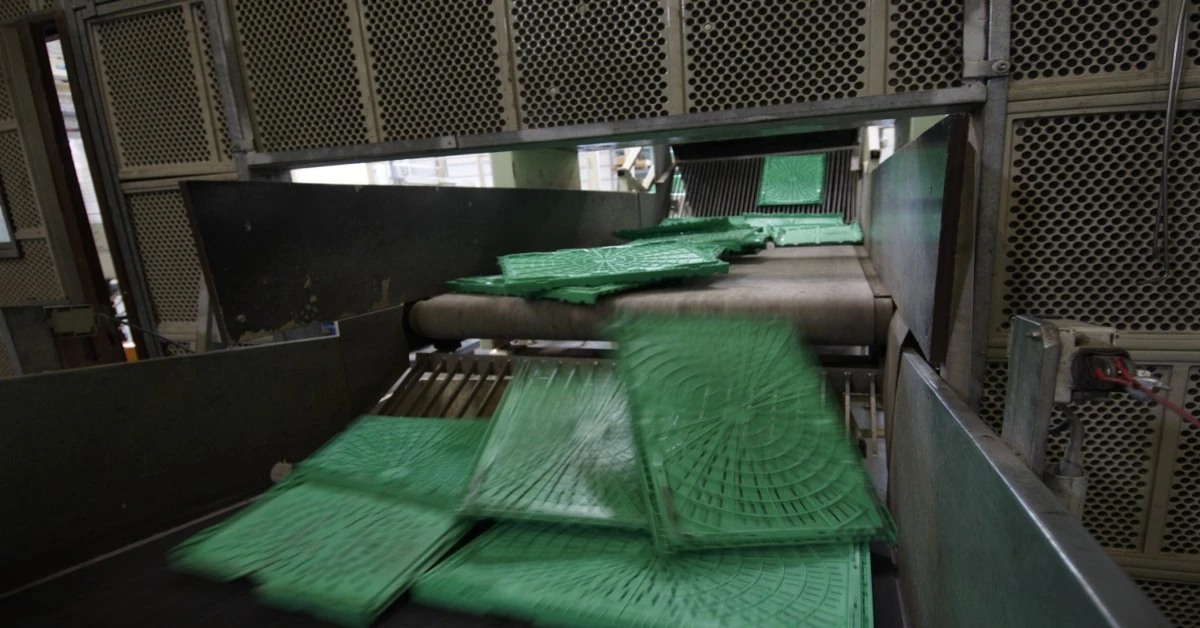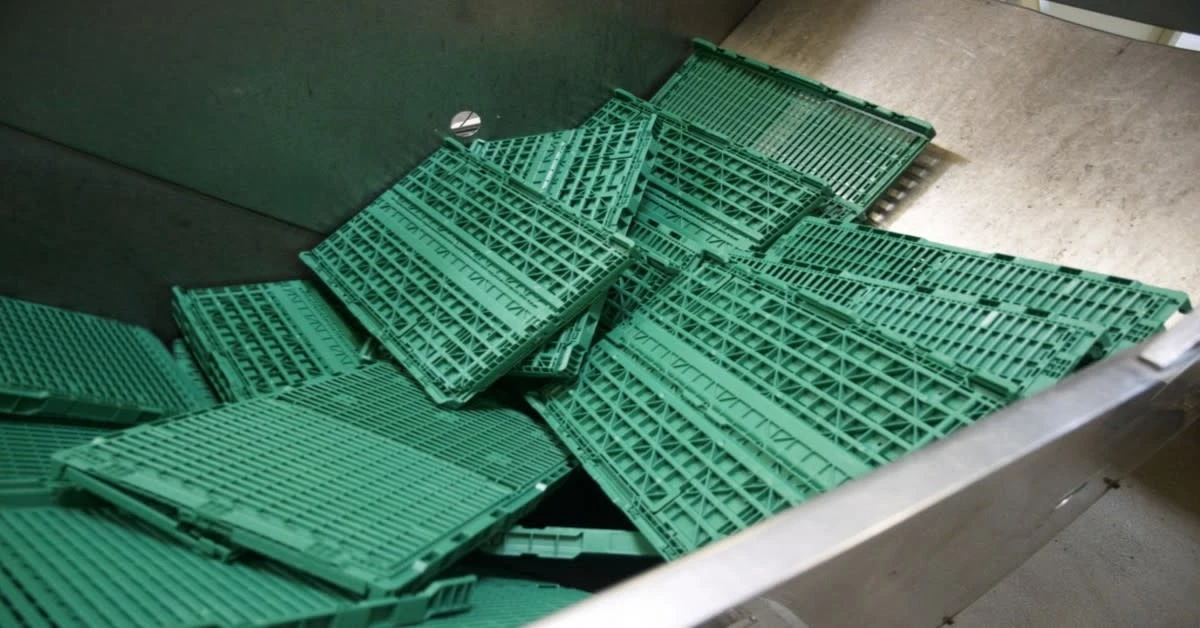INNOVATION: EFSA food-approved recycling process

Contact us
Get in touchSchoeller Allibert is proud to announce that our special recycling process, operating in three sites (Spain, Germany and The Netherlands) has been certified by EFSA for recycling old food contact containers into new food contact containers. After careful initial inspection, the material is ground into flakes, then washed, dried and transferred to injection molding machines...
EFSA APPROVAL GRANTED TO SCHOELLER ALLIBERT FOR INNOVATIVE RECYCLING PROCESS
Grocery retailers can now have their old returnable transit packaging (RTP) recycled into new high-quality food grade containers, thanks to Schoeller Allibert’s European Food Safety Authority (EFSA) accredited recycling process.
Schoeller Allibert is one of the first RTP manufacturers to gain EFSA-approval, which covers the recycling and remolding processes at its facilities in Murcia, Spain, Monheim, Germany; and Hardenberg, Netherlands. The accredited process, which covers the recycling of food-grade high-density polyethylene (HDPE) and polypropylene (PP) crates into new containers for food contact, has been developed in order to help retailers meet increasing stringent sustainability targets.
Traditionally, old or damaged plastic containers would be recycled for other use but could not re-enter the food supply chain as the plastic was not certified for direct contact with fresh produce such as fruit and vegetables, meat and fish, or bakery products.

Ludo Gielen, Chief Marketing and Innovation Officer at Schoeller Allibert, explains the process: “When food-grade crates need replacing due to age or damage, they can be returned to one of our three EFSA-approved facilities for recycling. Providing they have been used in a closed or controlled loop distribution system, which allows traceability of provenance, we can recycle used HDPE and PP material and mold into new crates for use in the food and fresh produce supply chain.
“Once returned to Schoeller Allibert they are first inspected then ground down into flakes which are washed and dried before being transferred to the injection molding area. They then begin a second life as new food-contact approved crates and containers, meaning that retailers can replace their inefficient legacy fleet with brand new RTP containers with no pollution and no waste, creating a sustainable packaging cycle all within a matter of weeks. The carbon footprint of RTP is already much lower than disposable packaging and recycling RTP reduces this even further. In addition to their environmental benefits, recycled containers also cut the capital cost to the retailer.”
During the injection molding process, the HDPE or PP flakes are heated to temperatures of up to 250ºC which removes the risk of any microbiological contamination as any remaining particles cannot survive at this heat, and no additional chemicals are used at any stage of the process to ensure a high-quality, hygienic end product.
The EFSA-approved recycling process is another industry first from Schoeller Allibert when it comes to sustainability, having already been the first packaging manufacturer to have the full lifecycle carbon footprint of specific products determined and independently verified. This demonstrated that the Product Carbon Footprint of its RTP is on average 68 percent less than cardboard, just 26 kgCO2e for each of its best-selling Maxinest units, which is further reduced when using recycled containers in the production process.

Ludo Gielen adds: “With our recycling facilities now accredited, we are able to offer products which enable grocery retailers to meet both sustainability targets and strict food safety and hygiene standards. The products molded from recycled material are fully compliant with Article 4 of the EU Regulation 282/2008, providing our customers with a guarantee of safety and suitability for food contact.”
Contact us
Get in touchContact us
Inspiration
Related
relevantItems.news.intro
Navigating EU Sustainability Regulations in Transport Packaging—A Roadmap for Compliance and Opportunity
We’re thrilled to introduce our latest whitepaper: New EU sustainability regulations and their impact on packaging. Designed as your essential resource, this whitepaper breaks down the complex, changing landscape of EU s...
Read newsDecathlon Pally Magnum®
Using 800 x 1200 Magnum Helium® for large products and fast moving references and Prelog CMB® for small goods and slow moving, Decathlon needed an intermediate size container easy to move in shops aisles.
Read more

